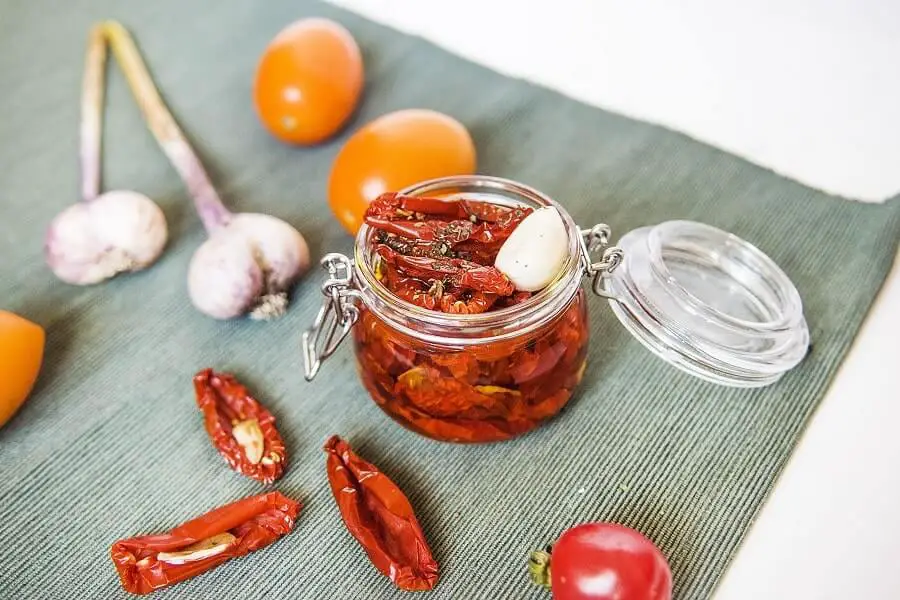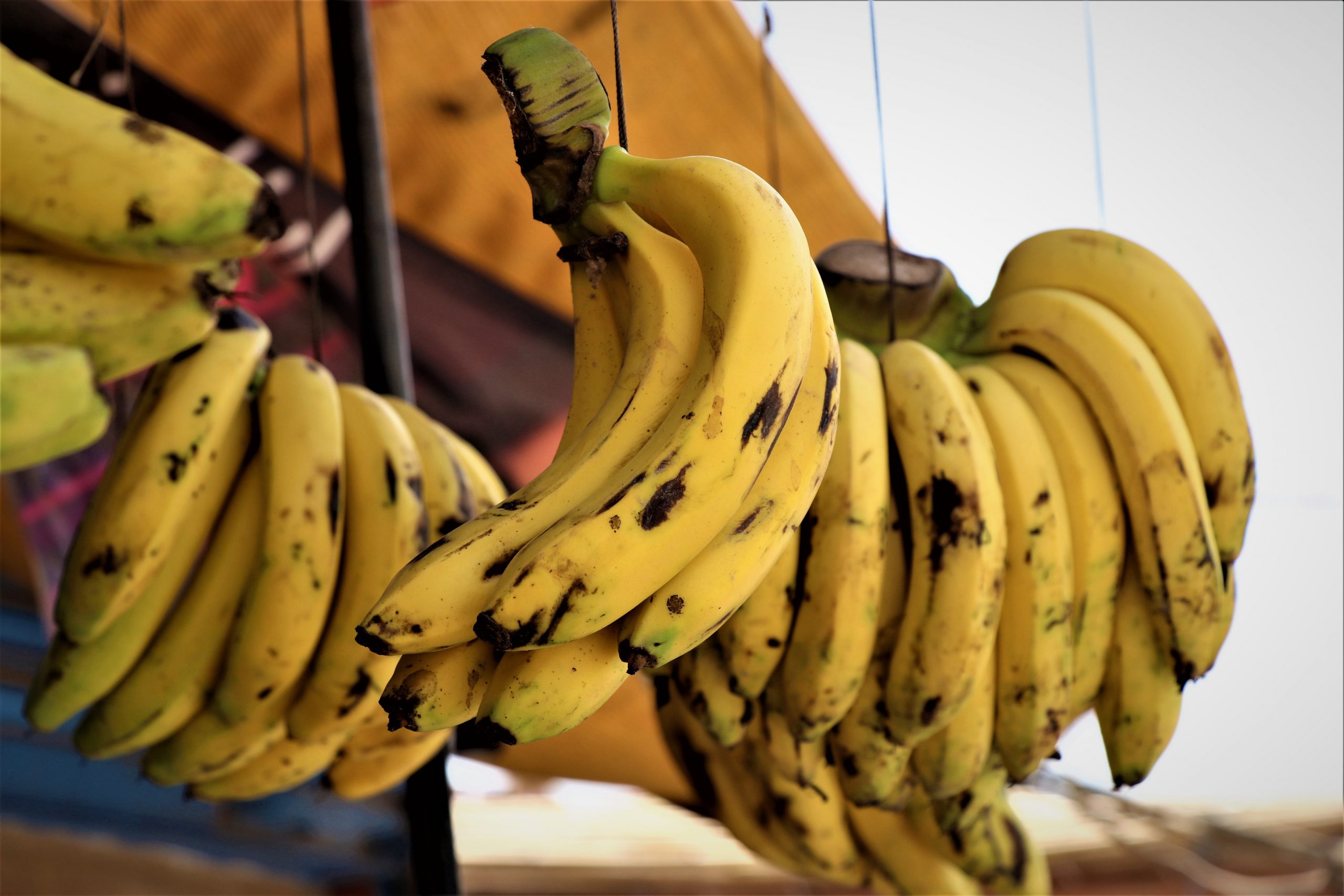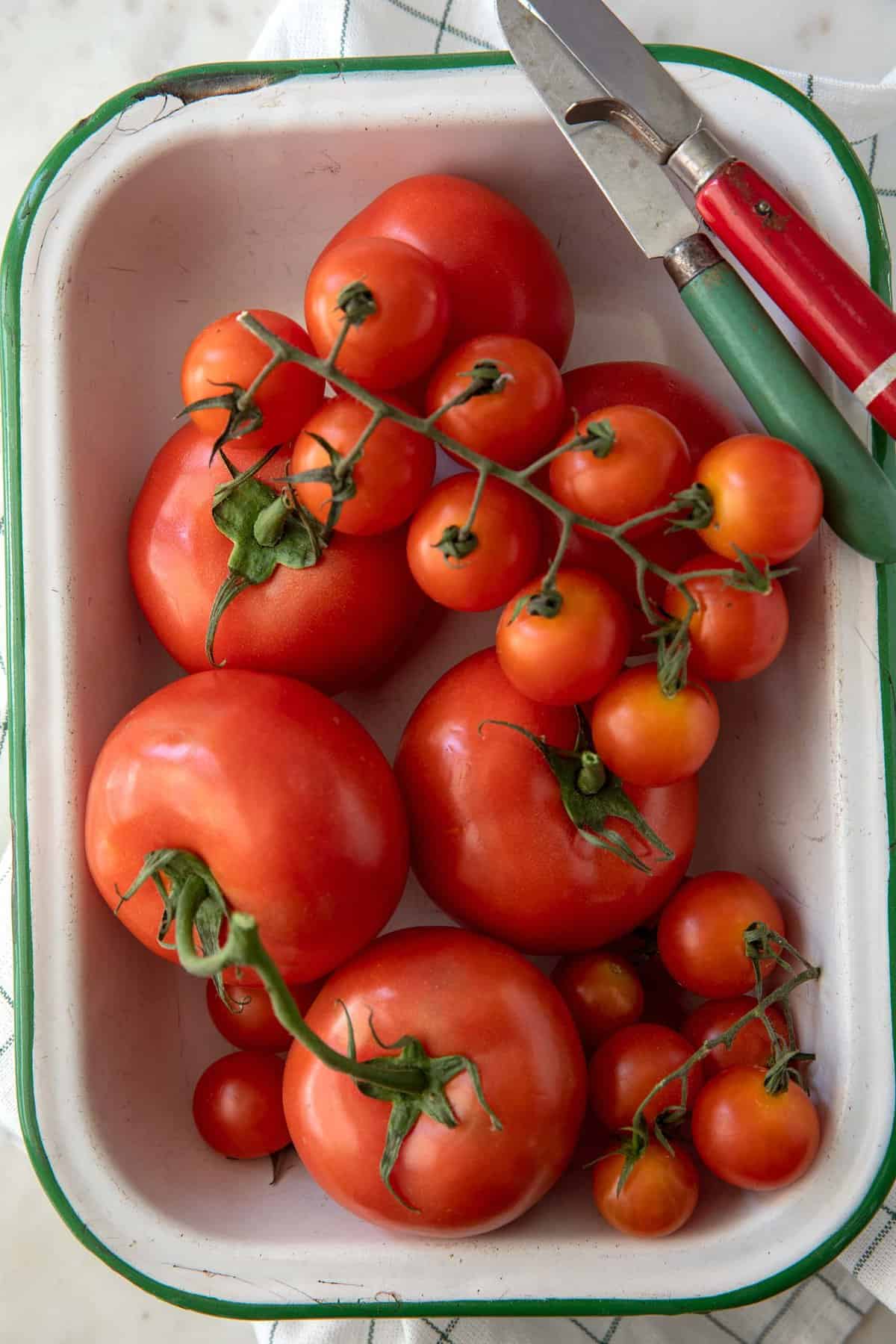
SunBurn How Long Does Sun Burn Last? See the Answer Now
Keep homemade oven sun-dried tomatoes in an airtight container in the pantry (without oil) for 2-3 days. Because there is still likely moisture in them, longer than that is not recommended. Refrigerator: Keep homemade oven sun-dried tomatoes in an airtight container in the fridge for up to 1 week without oil, or up to 3 weeks with oil.

How to make sun dried cherry tomatoes
Furthermore, if you make your own oil-packed dried tomatoes, they typically last one to two years ( 1 ). However, this depends on several factors. For example, store-bought oil-packed dried tomatoes may last up to 6 months if the seal is removed. In comparison, homemade oil-packed dried tomatoes could not last as long as those from the store.

How To Freeze Cherry Tomatoes From The Garden Vending Business
When stored properly in an airtight container or resealable bag, sun-dried tomatoes can last up to 6 months in the refrigerator. It's important to keep them away from moisture and humidity, as these conditions can cause the tomatoes to spoil quicker. If you notice any signs of mold or an off-putting smell, it's best to discard them to avoid.

How to Make Sun Dried Tomatoes (In The Oven!) Nurtured Homes
Keep them in a cool and dry place, away from sources of heat and direct sunlight. Make sure the jars are intact and the lids are not bulging. As long as no oxygen or moisture can reach the tomatoes, they should last very well. If you make your own sun-dried tomatoes, it's a different game. Store them in glass jars and avoid metallic.

How Long Do Sun Conures Live? Average Lifespan, Data & Care Pet Keen
Oil-packed sun-dried tomatoes will not last as long as plain sun-dried tomatoes. Their shelf life is anywhere from 1-2 years if unopened. If the packet is closed, it can be stored in a cool, dark place. But, once opened, they have about 2-3 weeks before going rancid. Oil-packed tomatoes have to be stored in the refrigerator.

How Long Do SunDried Tomatoes Last (Let's Find Out!) The Healthy Apron
Sun-dried tomatoes can go bad, and their shelf life depends on the type. There are three main types of sun-dried tomatoes: sun-dried, oven-dried, and oil-packed. Properly dried sun-dried tomatoes can last 6 months at room temperature, 1 year in the fridge, or 1-2 years when frozen. Avoid moisture and air exposure to maintain the quality of sun.

Do Sun Dried Tomatoes Go Bad? How Long They Really Last
Cover dried tomatoes in good quality olive oil. Add garlic and additional fresh herbs, such as basil and oregano (optional). If possible, seal jars. Refrigerate for 24 hours. Store sealed jars in pantry. Store unsealed and opened jars in the refrigerator to prevent spoilage.

How Long Does Cooked Meat Last in the Fridge? Cooking meat, Food
Puree for Recipes. Squeeze any air out of a plastic bag before sealing it. And if you're using a container, pack the sun-dried tomatoes in tightly so they fill the entire container. Store the tomatoes in a cool, dark cabinet for up to a year. After this point, they'll start to lose their flavor and nutritional value.

How long will cream cheese dip last in the fridge? YouTube
Conclusion. Sun-dried tomatoes, like every tomato, are susceptible to bacteria and spoilage, and when this happens, it is unsafe to consume. Sun-dried tomatoes can last from 1 to 2 years. However, once opened, it can last from 2 to 8 weeks and then to 6 months depending on the condition and how you store it.

How Long do Bananas Last in the Fridge?
Proper storage and handling are key to ensuring that your sun-dried tomatoes stay fresh and flavorful for as long as possible. When stored in an airtight container or resealable bag in the refrigerator, opened sun-dried tomatoes can last for up to two weeks. It's important to make sure that they are completely dry and free from any excess.

How Long Can Peppers Last in the Fridge? Cafe Italia Ristorante MA
T hey can indeed go bad. Once you have opened your jar or bottle of sun dried tomatoes they can last up to 5 days before turning bad and expiring. It is best to store your sun dried tomatoes in the fridge to allow them to reach the full 5 days. Homemade sun dried tomatoes can last longer.

How to Make SunDried Tomatoes (Fast!) In the Oven Garden Betty
Storage methods have a profound impact on the preservation and shelf life of sun-dried tomatoes. Sealed, airtight containers ensure a minimal exposure to air and humidity. In optimal storage conditions, dried tomatoes can last: Room temperature (dry-packed): up to 6 months. Refrigerator (dry-packed): up to 1 year.

How to Store Tomatoes The Harvest Kitchen
When stored correctly, opened sun-dried tomatoes can last for a significant amount of time. When stored in an airtight container or sealed plastic bag, opened sun-dried tomatoes can last for up to 2 weeks in the refrigerator. It is important to ensure that the container is sealed tightly to prevent air from reaching the tomatoes, which can.

Can SunDried Tomatoes Go Bad? [How To Tell If They've Gone Bad?]
The answer depends on a few factors, such as the packaging and how well they are stored. Generally, sun-dried tomatoes can last in the fridge for up to 6 months if stored properly. It is important to keep them in an airtight container or resealable bag to prevent moisture from getting in. Additionally, you can extend their shelf life by.

How Long Do Cooked Peppers Last In The Fridge? Solved (2023)
Yes, sun-dried tomatoes can spoil if not stored right. Usually, dry-packed ones stay good for a year if kept in a sealed container. If they are preserved in oil, they can last up to two years. But be aware that once you open the package, they must be used within a few weeks, even if you keep them in the fridge.

Can SunDried Tomatoes Go Bad? Awesome Eats
Sun-dried tomatoes do expire, and various factors influence their longevity. These include the method of preservation, whether they are stored in oil or left dry, and the environment in which they are kept. Humidity, light, and temperature can impact their shelf life significantly, but proper storage methods can extend their usability.